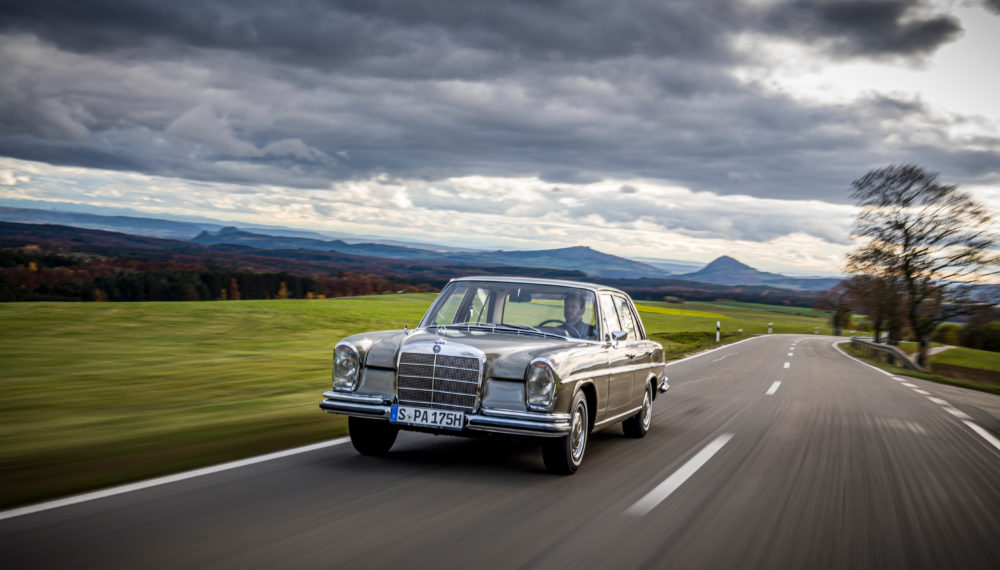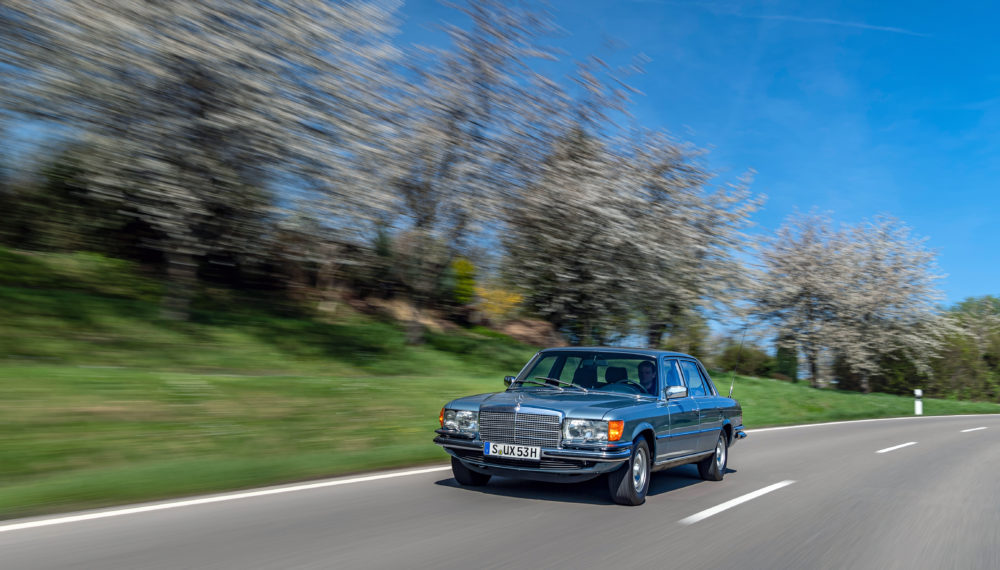A ‘Fintail’ based on the Mercedes-Benz 220 SE model (W 111 series) will compete in the season final of the long-distance cup organised by Fahrergemeinschaft Historischer Rennsport e.V. (FHR) on 22 and 23 October 2011 at the Nürburgring. Its participation in this race reflects the commitment of Mercedes-Benz Classic to upholding the traditions of the brand, which itself has a remarkable history in motor racing, and encouraging private drivers to take part in historical motorsport events. Mercedes-Benz Classic is a partner of the FHR race series. The ‘Fintail’ will be driven by British journalist Andrew Frankel and former touring car driver Klaus Ludwig. The vehicle has been built by the Mercedes-Benz Classic Center in accordance with the regulations laid down in Appendix K of the international sports regulations of the FIA (Féderation Internationale de l’Automobile).
Founded in 1983, the FHR has been promoting historical motor racing for almost 30 years and has made a significant contribution to boosting the popularity of the current race series with historical competition cars. The FHR, which has been under the auspices of ADAC Nordrhein since 2000, currently has around 600 active members.
Events taking place during the 2011 season include the ‘FHR HTGT for the Dunlop Trophy’ held as a series of sprint races for pre-1971 GT and touring cars, and the ‘Dunlop FHR Long Distance Cup’, a series of long-distance races for pre-1971 GT vehicles and touring cars built before 1976. In addition, there will be two series for formula vehicles.
Through its involvement in this fascinating sport, Mercedes-Benz is not only demonstrating its commitment to the active historical motorsport scene, but is also paying tribute to an exciting chapter in its own history. When the era of Mercedes victories in Formula One World Championships and racing cars ended in 1955, Mercedes-Benz enjoyed great success for a number of years in international long-distance races and rallies. This period was characterised in particular in the early 1960s by the ”Fintail’ saloons with six-cylinder engines (220 SE and 300 SE models), which also served as a model for the new Mercedes-Benz 220 SE.
Typically, there was not much difference technically between competition cars and production models in the 1960s. The usual modifications included reinforcement of chassis elements and body components, a bigger fuel tank and adjustment of the engine characteristics to suit the specific purpose.
The principle of designing a powerful competition car that is closely based on stock technology is one that Mercedes-Benz Classic followed closely when building the 220 SE for the FHR Long Distance Cup. The modifications made to the production vehicle by the specialists at the Classic Center included equipping the interior with a safety cage with a safety quick-release lock for side impact protection elements such as cross door bars and protective side moulding (Fix Opening and Closure Security System, or FO-CS for short). In addition, the tail fin has been fitted with a fire extinguishing system and a 100-litre FT3 safety tank. In future, the car will also boast 5.5 x 15 wheels fitted with 6 x 15 tyres. Naturally, the W 111 also features the same classic light grey paint finish (shade DB 140) as used on vehicles between 1961 and 1964.
Mercedes-Benz 220 SE vehicle data
- Engine: six-cylinder (in-line)
- Bore x stroke: 80 x 72.8 mm
- Cubic capacity: 2195 cc
- Output: 120 bhp (88 kW) at 4800 rpm
- Maximum torque: 19.3 mkg (189 Nm) at 3900 rpm
- Front axle: double wishbone, coil springs, anti-roll bar, telescopic shock absorbers
- Power transmission: via propshaft on rear axle
- Rear axle: single-joint swing axle with compensating spring, coil springs, telescopic shock absorbers
- Brakes: hydraulic braking system with brake booster
- Front brakes: disk brakes, diameter: 253 mm
- Rear brakes: Duplex drum brakes with turbo-cooled Alfin drums, diameter:
- 230 mm
- Transmission: 4-speed manual transmission with floor shift
- Clutch: single-plate dry clutch
- Top speed: approx. 170 km/h







